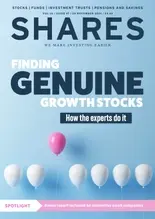
The FTSE 100 closed higher in London on Tuesday, as miners enjoyed a boost from stimulus efforts in China, while mid-caps retreated from earlier in the day following US data.
The FTSE 100 index closed up 23.05 points, or 0.3%, at 8,282.76. The FTSE 250 ended down 75.00 points, or 0.4%, at 20,770.12, and the AIM All-Share closed down 1.52 points, 0.2%, at 742.80.
The Cboe UK 100 ended up 0.3% at 828.34, the Cboe UK 250 ended down 0.4% at 18,285.54, and the Cboe Small Companies ended down 0.7% at 16,826.95.
In European equities on Tuesday, the CAC 40 in Paris ended up 1.3%, while the DAX 40 in Frankfurt advanced by 0.8%.
Equities got off to a bright start after Chinese authorities unveiled their latest package of monetary easing measures.
Among the moves unveiled was a cut to the reserve requirement ratio, which dictates the amount of cash banks must hold in reserve.
The move will inject around a trillion yuan ($141.7 billion) in ‘long-term liquidity’ into the financial market, central bank chief Pan Gongsheng said.
Beijing would also ‘lower the interest rates of existing mortgage loans’.
And it will ‘guide commercial banks to lower the interest rates of existing mortgage loans to the vicinity of the interest rates of newly issued loans’.
The moves represent ‘the most significant... stimulus package since the early days of the pandemic’, Julian Evans-Pritchard, head of China economics at Capital Economics.
But ‘it may not be enough’, he warned, adding a full economic recovery would ‘require more substantial fiscal support than the modest pick-up in government spending that’s currently in the pipeline’.
The news sent shares in Asia soaring and sparked gains for miners, Asia-focused firms and some respite for battered luxury goods retailer Burberry, which rose 2.1%.
Mining stocks in the green included Antofagasta, up 6.3%, Anglo American, up 6.6%, Rio Tinto, up 4.5% and Glencore, up 3.9%.
Asia-focused insurer Prudential climbed 4.1% while Standard Chartered advanced 3.0%.
However, the mood was soured somewhat by figures showing a drop in US consumer confidence.
The Conference Board’s consumer confidence index fell sharply to 98.7 in September, down from a revised 105.6 last month.
This was well below a Barclays-cited consensus of 104.0.
‘The deterioration across the Index’s main components likely reflected consumers concerns about the labour market,’ despite the jobs market actually remaining quite healthy, the Conference Board’s chief economist Dana Peterson said in a statement.
Despite this, stocks on Wall Street held in modest gains at the time of London close. The DJIA was flat, the S&P 500 index was up 0.1% and the Nasdaq Composite was up 0.4%.
Meanwhile, the sole Federal Reserve official not to support last week’s large interest rate cut said that the risks of inflation reigniting remained ‘prominent.’
Michelle Bowman’s vote in favour of a smaller cut of a quarter percentage-point instead made her the first official on the Fed’s rate-setting committee to dissent from the majority for more than two years.
Speaking in the US state of Virginia on Tuesday, Bowman said ‘the upside risks to inflation remain prominent.’
She said she expected the so-called neutral rate to end up ‘much higher’ than it was before the pandemic.
‘Therefore, I think we are much closer to neutral than would have been the case under pre-pandemic conditions, and I did not see the peak stance of policy as restrictive to the same extent that my colleagues may have,’ she added.
The pound was quoted at $1.3378 at the London equities close on Tuesday, up compared to $1.3357 at the close on Monday. The euro stood at $1.1147 against $1.1135.
Supporting the pound, the governor of the Bank of England said he expects interest rates to ‘gradually’ decrease as he is ‘encouraged’ by a reduction in price pressures.
‘Inflation has come down a long way . . . We still have to get it sustainably at the target and we have quite an unbalanced mix of components of inflation at the moment,’ Andrew Bailey said in an interview with news site KentOnline.
‘But I’m very encouraged that the path is downwards therefore I do think the path for interest rates will be downwards, gradually.’
Meanwhile, Prime Minister Keir Starmer pledged to take ‘tough long-term decisions’ to reform Britain and fix the country‘s public finances, as he addressed Labour’s annual conference for the first time since his party swept to power in July‘s general election.
‘I understand many of the decisions we must take will be unpopular,’ Starmer told delegates in Liverpool on Tuesday. ‘First we stabilize our economy, second we fix the foundations and third we build with pride and determination a Britain that belongs to you.’
Against the yen, the dollar was trading at JP¥143.67, down a touch from JP¥143.77 late Monday.
On London’s FTSE 100, Bailey’s comments of a slow pace of rate cuts plus no housing policy developments in Starmer’s speech saw rate sensitive housebuilders dip into the red.
Vistry fell 1.7%, Taylor Wimpey slipped 1.0% and Berkeley Group declined 1.3%.
Smiths Group was the biggest casualty in the FTSE 100, down 5.2%, as results missed expectations.
In the financial year that ended July 31, the London-based engineering firm said pretax profit increased 3.3% to £372 million from £360 million the year before. Revenue rose 3.1% to £3.13 billion from £3.04 billion, slightly below the company-compiled consensus of £3.15 billion.
Operating profit rose 3.0% to £415 million from £403 million with the operating profit margin of 16.8%, improving from 16.5% a year ago but below the 17.0% analyst consensus.
Analysts at RBC Capital Markets pointed out headline operating profit - earnings before interest, tax and amortisation - of £526 million was below the £535 million consensus, although 5.0% ahead of £501 million the year prior.
‘All of this looks solid if unspectacular, and sticking to the financial framework for financial 2025 is encouraging, given weaker outlooks for some other industrials recently,’ said analysts at Stifel.
Faring better, Raspberry Pi climbed 6.6% after releasing its first earnings since floating on the London Stock Exchange in June.
In the six months to June 30, the Cambridge-based budget computer firm said pretax profit rose 0.9% to $10.8 million from $10.7 million a year prior. Revenue jumped 61% to $144.0 million from $89.3 million.
Gross profit rose 47% to $34.2 million from $23.2 million although gross margin declined 2.3 percentage points to 23.8% from 26.1%. Basic earnings per share fell 11% to 3.92 US cents from 4.39 cents.
Raspberry Pi said first half profitability was ‘stronger than expected’, and while volumes were marginally lower than predicted, sales were skewed towards ‘higher margin variants’.
But Dunelm fell 6.3% after Deputy Chair Will Adderley, together with Nadine Adderley, sold 10 million shares at 1,140 pence each, a discount to the current share price.
Card Factory slumped 21% as profit fell in its half-year. The greetings cards seller put this down to ‘substantial increases in national living wage, plus freight inflation and phasing of strategic investments’.
Pretax profit dropped 43% to £14.0 million in the six months to July 31, from £24.7 million a year prior. Revenue, however, rose 5.9% annually to £233.8 million from £220.8 million.
The stimulus moves in China boosted the price of oil. Brent was quoted at $74.85 a barrel at the London equities close on Tuesday, up from $73.80 late Monday.
Gold was quoted at $2,646.07 an ounce at the London equities close on Tuesday, against $2,630.09 at the close on Monday.
Wednesday’s UK corporate calendar sees results from Da La Rue and DFS Furniture.
Copyright 2024 Alliance News Ltd. All Rights Reserved.




